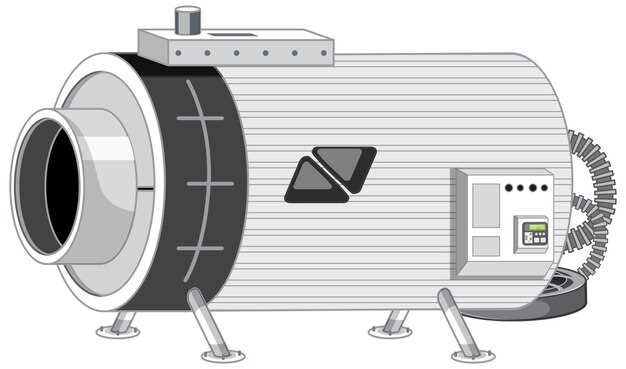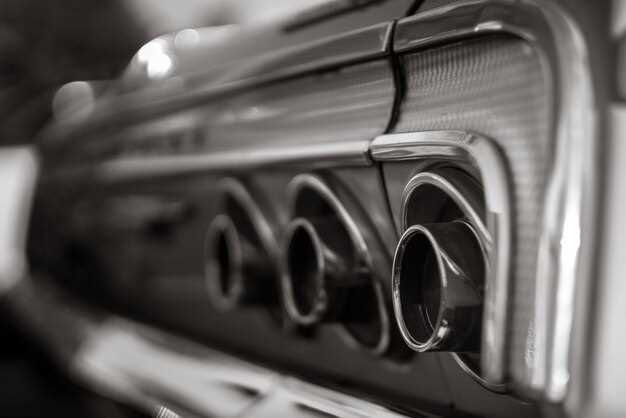
The performance of any vehicle is often measured by its sound and power. For car enthusiasts and everyday drivers alike, upgrading the exhaust system can be a game-changer. A custom exhaust system not only gives your vehicle a unique sound that sets it apart from the crowd, but it also enhances overall engine performance by improving airflow.
When considering an exhaust upgrade, it’s essential to understand the components involved. From headers to mufflers, every part plays a crucial role in how your vehicle performs and sounds. A well-designed custom exhaust system minimizes back pressure, allowing for better exhaust flow and consequently increasing horsepower and torque. This means that, with the right setup, your car can feel more powerful and responsive on the road.
Moreover, the sound produced by a custom exhaust system is often one of the most sought-after modifications. Whether you prefer a deep growl or a high-pitched roar, creating a sound profile that matches your personal style can elevate your driving experience. A thoughtfully crafted exhaust upgrade can enhance not only your vehicle’s performance but also its personality, ensuring it resonates with your passion for driving.
Choosing the Right Materials for Performance and Sound Quality
When upgrading your exhaust system, selecting the right materials is crucial for achieving optimal performance and sound quality. The choice of material not only affects the longevity of the exhaust but also plays a significant role in the overall sound produced by your vehicle.
Stainless steel is one of the most popular choices for high-performance exhaust systems. Its resistance to corrosion and heat allows for a durable system that can withstand harsh conditions. Moreover, stainless steel provides a rich, deep sound, enhancing the acoustic profile of your vehicle.
Another option is aluminized steel, which is more affordable than stainless steel. While it provides decent performance and sound quality, it is less durable and may rust over time, particularly in exposed areas. If you’re considering a temporary upgrade, aluminized steel may be suitable, but for long-term performance, stainless steel is preferred.
For enthusiasts looking for a lightweight option, titanium is an excellent choice. Although it comes with a higher price tag, titanium’s strength-to-weight ratio significantly reduces overall vehicle weight, which can improve power and efficiency. Additionally, titanium tends to produce a unique, distinctive sound that many performance drivers find appealing.
Pipe diameter and design also play a vital role in sound and performance. Larger diameter pipes can reduce back pressure, allowing exhaust gases to exit more freely, which can enhance power. However, this may also create a louder sound, so careful consideration should be taken to balance performance with the desired sound level.
In conclusion, the right material selection for your exhaust system can significantly impact your vehicle’s performance and sound quality. Consider your needs and preferences while also factoring in budget and long-term durability when making your decision.
Understanding the Impact of Exhaust Diameter on Power Output

The diameter of an exhaust system plays a critical role in determining both the performance and sound characteristics of a vehicle. A well-designed exhaust system can significantly enhance engine efficiency, power output, and overall driving enjoyment.
When considering the impact of exhaust diameter on power output, several factors come into play:
- Back Pressure: The diameter influences back pressure in the exhaust system. A larger diameter typically reduces back pressure, allowing exhaust gases to escape more freely. This can lead to improved engine performance, particularly at higher RPMs.
- Engine Size: The optimal exhaust diameter varies depending on the engine size and configuration. Larger engines may benefit from wider exhaust pipes, while smaller engines may perform better with narrower diameters to maintain appropriate gas speeds.
- Tuning: Adjusting exhaust diameter can help tune the engine for specific applications, such as racing versus everyday driving. A custom exhaust system can enhance power in specific RPM ranges by matching the diameter to the engine’s power band.
- Sound Characteristics: The diameter also affects the exhaust sound. A larger diameter can produce a deeper, more aggressive sound, which many enthusiasts find appealing, while wider pipes may deliver a louder overall volume.
Choosing the right exhaust diameter involves balancing several aspects:
- Identify engine specifications and requirements.
- Consider the intended use of the vehicle (daily driving, racing, etc.).
- Evaluate personal preferences for sound and performance.
- Consult with exhaust experts or tuners for customized solutions.
In conclusion, the impact of exhaust diameter on power output is significant and should not be overlooked. By carefully selecting the proper diameter, you can optimize your vehicle’s performance and enhance its sound, creating a more enjoyable driving experience.
Legal Considerations and Noise Regulations for Exhaust Modifications

When considering an exhaust upgrade, it is essential to understand the legal framework surrounding modifications. Each jurisdiction has specific noise regulations and emissions standards that can significantly impact your ability to modify your vehicle’s exhaust system.
Most regions enforce noise limits that dictate how loud a vehicle can be. These limits are usually measured in decibels (dB) and can vary based on the type of vehicle and the environment in which it operates. Modifying your exhaust system may lead to increased noise levels, which could result in fines or penalties if they exceed local regulations.
In addition to noise restrictions, there are also emissions laws to consider. Upgrading your exhaust can affect your vehicle’s emissions output, potentially making it non-compliant with state or federal standards. For example, the Environmental Protection Agency (EPA) in the United States regulates emissions for vehicles, and any modification must comply with these standards to avoid legal repercussions.
Before proceeding with an exhaust upgrade, consult local laws to ensure compliance. Keeping documentation of your modifications and the products used can help demonstrate your vehicle’s adherence to legal standards. Engaging in responsible upgrades not only enhances performance but also maintains legal integrity.




